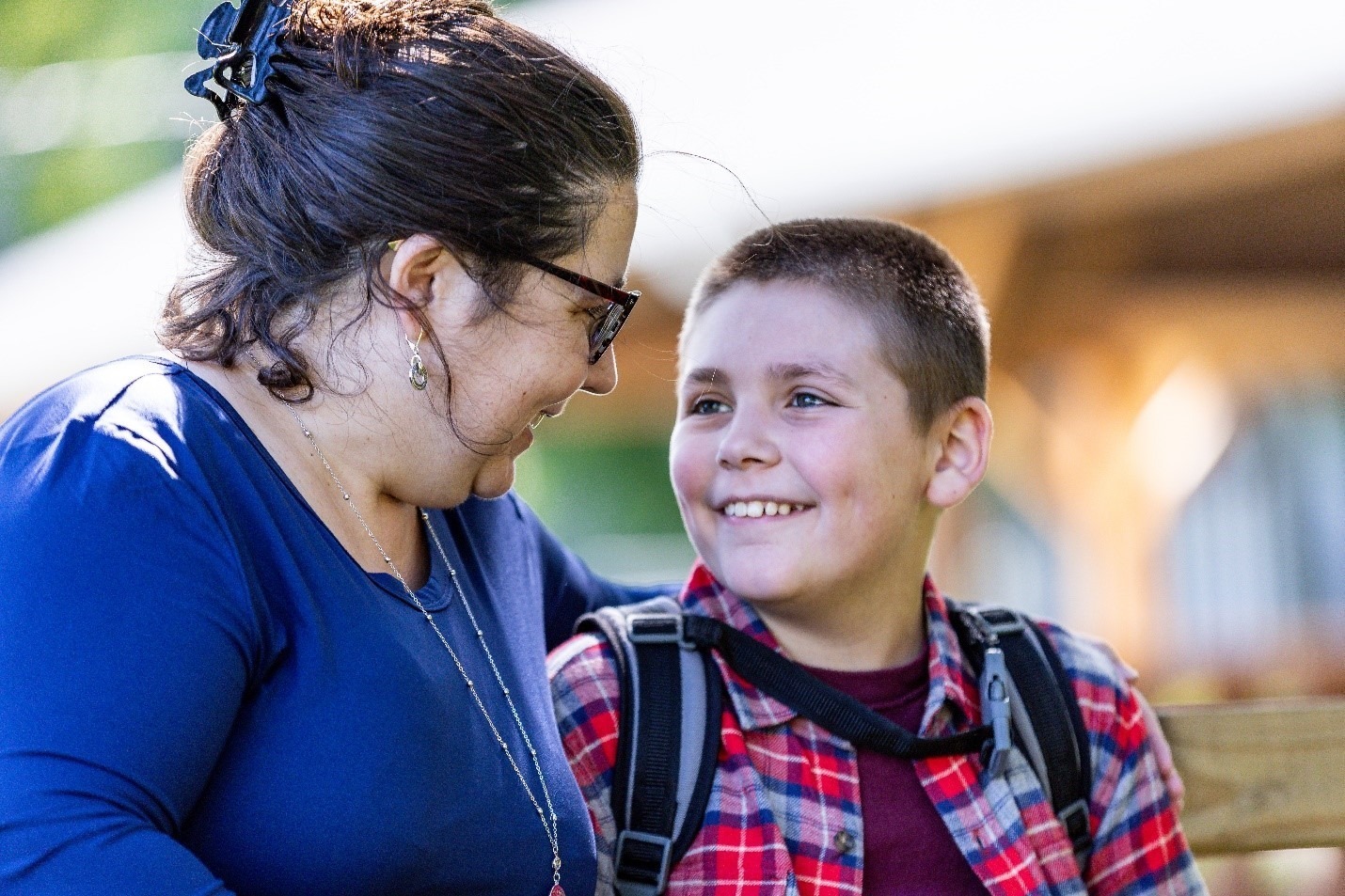
“I can’t even tell you how often we were in the hospital in those early years,” said Nikki about her son Gavin, who was diagnosed with mitochondrial disease as a toddler. The disease rapidly progressed, causing chaos in Gavin’s small body.
At age five, he received a gastrostomy tube (G-tube), which feeds him 20 hours daily to this day. Receiving consistent nutrition helped to provide some stability as he aged, but as with many mito patients, there were frequent health and developmental setbacks.
Even today, as an 11-year-old, that’s still the case.
“It seems like the disease levels off for a few months, then something small puts him into a tailspin,” said Nikki.
Gavin’s younger sister, Hayden, age 8, was sadly also diagnosed with mitochondrial disease. Despite the same diagnosis, the disease has manifested itself very differently in her body. She has some muscle weakness and gastrointestinal issues but never experienced rapid progression like Gavin did in his early years.
“They are very close. They really champion each other. It’s not the typical sibling relationship,” Nikki says. Both kids require weekly health check-ins where Gavin gets immunoglobulin infusions and Hayden gets injections for skin and allergy issues.
During those, Gavin refuses to leave Hayden’s side. “Gavin is constantly telling her how things work, encouraging her to stay calm and that everything is going to be okay,” said Nikki.
After attending support calls for years, Nikki decided to become a UMDF Support Ambassador, where she uses her knowledge to help guide other mito families.
She’s also become a UMDF Advocate, frequently reaching out to congressional members to urge the passage of mito-friendly legislation. Earlier this year, she was selected to be a mitochondrial disease peer reviewer for the Department of Defense’s (DOD) Congressionally Directed Medical Research Programs, a position that allowed her to judge several research funding applications related to mitochondrial disease.
“It was amazing to have my thoughts heard by these brilliant people,” she said. “There were a couple of incredible projects that I thought, ‘If these don’t happen, I’m gonna go find people.”
